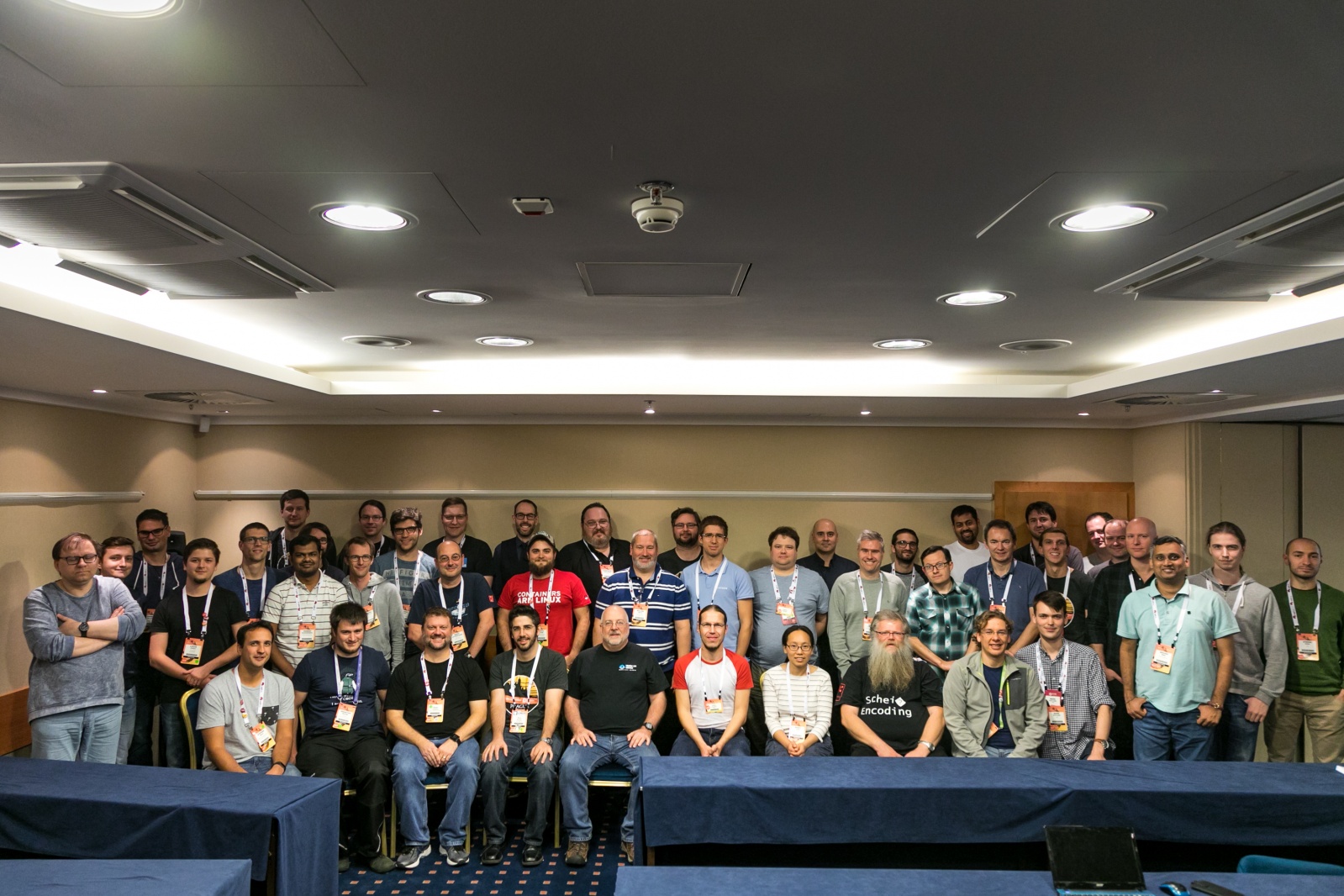After publishing our slides and videos from the Embedded Linux Conference Europe (ELCE), reporting on talks selected by Bootlin engineers, and mentioning the award given to Michael Opdenacker, here comes the last blog post giving feedback from our participation to the 2017 edition of this conference.
On Thursday after ELCE, Bootlin engineers Maxime Ripard and Thomas Petazzoni participated to the Device Tree workshop, a day-long meeting to discuss the status and future of Device Tree support, especially in the context of the Linux kernel.
Beyond participating to the event, Maxime and Thomas also presented briefly on two topics:
- Maxime Ripard brought up the topic of handling foreign DT bindings (see slides). Currently, the Device Tree bindings documentation is stored in the Linux kernel source tree, in
Documentation/devicetree/bindings/. However, in theory, bindings are not operating-system specific, and indeed the same bindings are used in other projects: U-Boot, Barebox, FreeBSD, Zephyr, and probably more. Maxime raised the question of what these projects should do when they create new bindings or extend existing ones? Should they contribute a patch to Linux? Should we have a separate repository for DT bindings? A bit of discussion followed, but without getting to a real conclusion. - Thomas Petazzoni presented on the topic of avoiding duplication in Device Tree representations (see slides). Recent Marvell Armada processors have a hardware layout where a block containing multiple IPs is duplicated several times in the SoC. In the currently available Armada 8040 there are two copies of the CP110 hardware block, and the Linux kernel carries a separate description for each. While very similar, those descriptions have subtle differences that make it non-trivial to de-duplicate. However, future SoCs will not have just 2 copies of the same hardware block, 4 copies or potentially more. In such a situation, duplicating the Device Tree description is no longer reasonable. Thomas presented a solution based on the C pre-processor, and commented on other options, such as a script to generate DTs, or improvements in the DT compiler itself. A discussion around those options followed, and while tooling improvements were considered as being the long-term solution, in the short term the solution based on the C pre-processor was acceptable upstream.
For Bootlin, participating to such events is very important, as it allows to expose to kernel developers the issue we are facing in some of our projects, and to get direct feedback from the developers on how to move forward on those topics. We definitely intend to continue participating in similar events in the future, for topics of interest to Bootlin.

